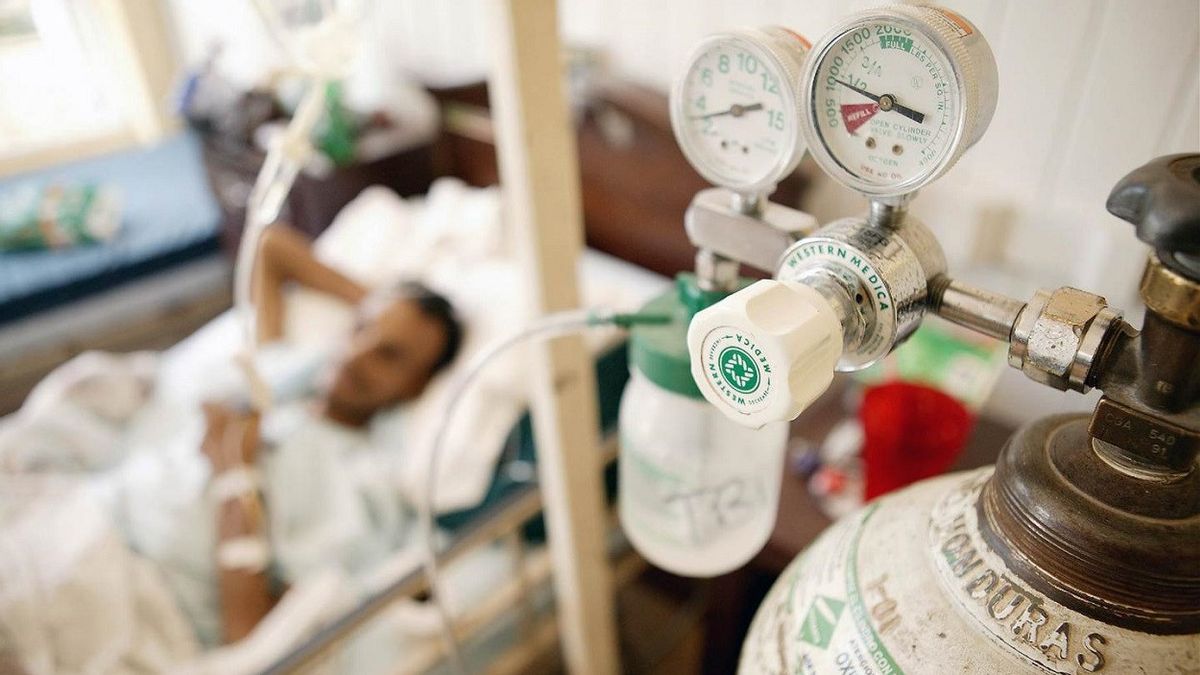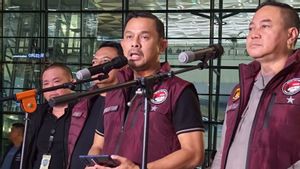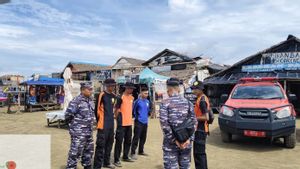JAKARTA - For the first time in six weeks, the daily count of coronavirus infection cases in India is at its lowest in 24 hours. However, at the same time India is also experiencing a shortage of the COVID-19 vaccine.
Data of the Indian Ministry of Health said that the daily reports of infection cases in the last 24 hours on Tuesday reached 196,427 cases. It was the lowest since April 14, less than half the peak of the report which reached 414,188 cases on May 7. Thus, India has a total of 26.95 million cases of COVID-19 infection, reuters reported Tuesday, May 25.
Meanwhile, the number of deaths increased by 3,511 deaths in the last 24 hours, bringing the total number of deaths since last year's pandemic in India to 307,231. Nevertheless, experts worry the decline is more due to the number of new infections that go unreported, due to a lack of testing in villages.
Experts also believe, too underestimate the actual number of victims because only people who tested positive are counted, whereas many victims are never tested.
Not only that, experts are also worried that India will be hit by the third wave of COVID-19, along with the lack of COVID-19 vaccine in the country. So far, India has only 3 percent of its 1.3 billion inhabitants. Lowest in the top 10 countries with the most CASES of COVID-19.
The Indian Serum Institute, which supplies astrazeneca vaccines and local company Bharat Biotech which provides Covaxin states, they are increasing production but the supply is still far from the millions of doses India needs.
Wanting to meet its vaccine needs, a number of states launched global tenders for the COVID-19 vaccine, such as Mumbai, which contacted Pfizer, Moderna and Johnson &Johnson for urgent supplies.
But Delhi Deputy Prime Minister Manish Sisodia said the three companies said they were in contact with the Indian federal government and would not deal with state-level authorities.
Sisodia blamed Prime Minister Narendra Modi's government for mishandling vaccine procurement and not moving fast enough to secure supplies for the country.
"This is a global mistake," said Sisodia, whose Aam Aadmi Party strongly opposes Modi's Bharatiya Janata Party (BJP).
The northern state of Punjab also said at the weekend its efforts to get supplies directly had been rejected by foreign vaccine manufacturers. The hilly state of Uttarakhand extended its global tender until the end of the month, after failing to get any bids, local media reported on Tuesday.
"Vaccination efforts are falling apart and people are suffering and desperate," said Anand Sharma, a major opposition leader of Congress, urging PM Modi to put politics aside and work with the state government to help them get vaccines.
Separately, Pfizer said it was in talks with the Indian government to supply its vaccine, which still has to be approved by India's drug regulator.
"Pfizer remains committed to continuing our engagement with the Indian government to make the Pfizer BioNTech COVID-19 vaccine available for use in the country," a spokesperson told Reuters, declining to provide details of the ongoing discussions.
The English, Chinese, Japanese, Arabic, and French versions are automatically generated by the AI. So there may still be inaccuracies in translating, please always see Indonesian as our main language. (system supported by DigitalSiber.id)








